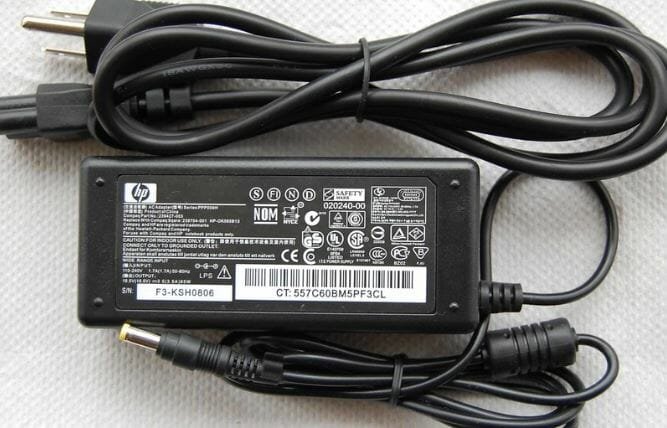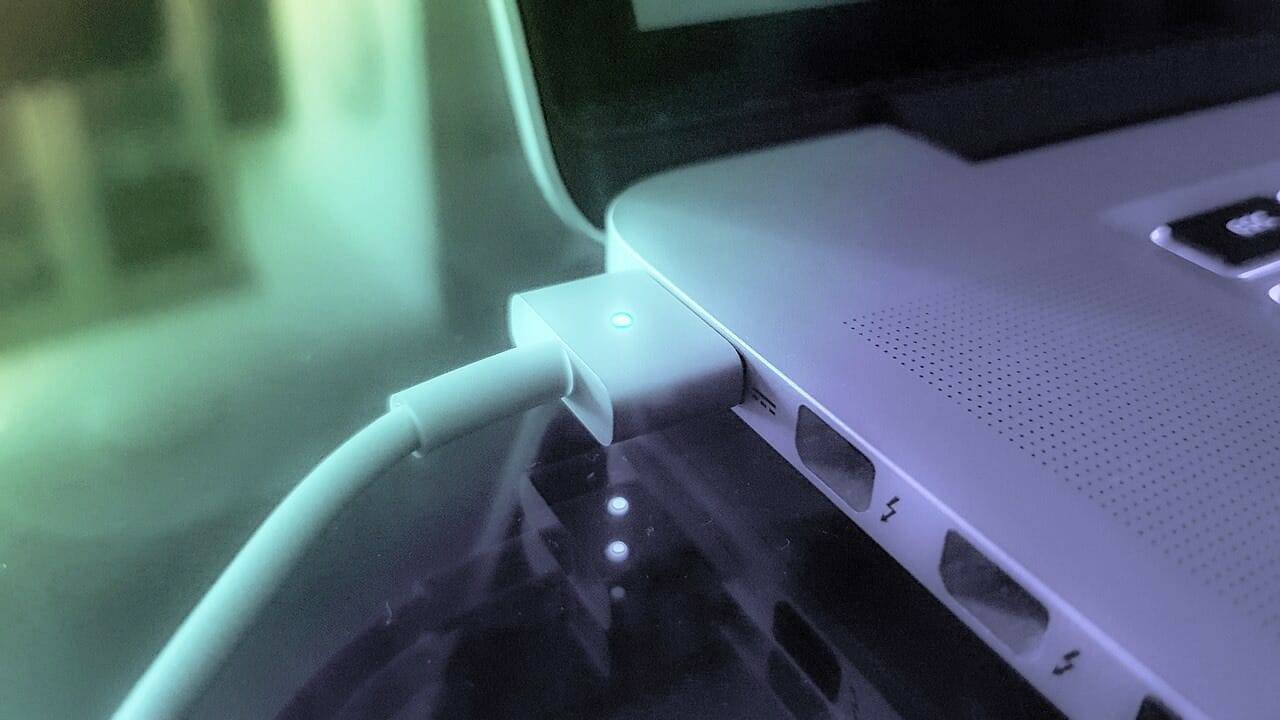If you’re looking to buy a new laptop charger, or just want to know how to choose the best laptop charger, then you are in the right place. In this article, I will help you to find out the answer to your these question. First, let’s go over some basics about laptops, power supply, and wattage requirements. Then we’ll talk about the different ways you can choose to charge your laptop and what that means for your power supply needs.
The Importance of Wattage
Just so you know, wattage is an important thing to know when charging your laptop. When you try to use a charger that doesn’t have enough wattage, you risk harming your laptop, extending the charging time, and taking up a spot that someone else might need. Keep reading for all of our tips on the right amount of watts and good practices for choosing chargers. Watt’s Up With Wattage? In layman’s terms, wattage is basically how much juice you’ll get out of any given device or appliance.
Interested in Top 8-Best 17-inch Laptop Under $500
Understanding Amps, Volts, and Watts

Before you can decide on how many watts you need, it’s important to understand what those three terms mean: amps, volts, and watts.
Amps (or amperes) refer to how much current your device requires.
Volts (or volts) refer to how much energy will be sent through a circuit as electrons move from one point to another.
Watts refer to how much work that energy does for your device—and is measured in joules per second. By knowing all three numbers—amps, volts, and watts—you can determine which laptop charger is best for you.
Considerations when buying a laptop charger

Many factors can affect a power cord’s quality, safety, and price. First and foremost, it’s important to make sure you’re purchasing a laptop charger that is compatible with your laptop. You should also keep in mind its weight (lighter is always better), voltage compatibility (you want 100-120V or 200-240V), length (longer may be more useful if you need to reach faraway outlets), and thickness/gauge of cable (thicker is safer but may be harder to carry).
Finally, consider speed charging: This technology allows laptops to charge faster without causing damage to battery life. As with all electronics purchases, check reviews first, and don’t forget about sales—there are often promos on Amazon that offer great deals on laptop chargers! And remember: when in doubt, opt for a heavier-duty option as many companies skimp on cheaper chargers. That way, you get what you pay for.
Does a Portable Charger Work for Charging a Laptop?
Portable chargers can make life so much easier. They’re great for emergencies, road trips, and traveling in general. Although portable chargers are relatively new on the market, they have become increasingly popular.
Portable chargers typically output 5W, and laptops typically take at least 12W of electricity. A portable charger that can charge a laptop is most likely larger than a typical smartphone charger because it needs to put out more power.
This means that some portables won’t have enough juice (or be small enough) to charge up your laptop while you’re on the go. If you want your portable charger to also work as a laptop charger, you should look for one with an output of 20W or more.
Does Overcharging Damage Your Battery Life And Health?

One of your laptop’s biggest enemies is overcharging, which can damage battery life and health. Overcharging happens when you leave your laptop plugged in while it still has at least a 25% charge. Think about it: If your battery was 100%, then leaving it plugged in would be fine.
However, if your power source already has power going into it and then you add more power through an outlet, that extra juice will be wasted as heat. Heat is what kills batteries (and all other electronics). This is why you shouldn’t ever let your gadgets get hot to touch—it’s not good for them.
Overcharging a battery can cause electrolyte overpressure and possibly lead to venting, which results in a fire or explosion. That makes it important that you only use a charger designed for your specific battery. Does Overcharging Damage Your Battery Life And Health? Lithium ion batteries don’t wear out, but charging can damage them.
Downside of Charging Your Laptop with a Solar Charger
While solar power seems like a great idea, it can be tricky to charge your laptop with a solar charger. The downside of using a solar charger is that it can take all day to recharge your laptop because solar chargers are typically very low wattage.
A typical laptop uses about 40 watts of power, so you need about 160 hours of full sun to fully charge your laptop if you use a 5-watt solar charger. A small 9-watt panel could take around 22 hours to charge an 11-inch MacBook Air. The larger panels (30 watts and above) don’t work much better—aside from being too heavy for convenient travel—so if you want a fully charged battery within eight hours or less, think about getting an extra battery instead.
Also visit: 5 Best Laptop For Video Editing Under 500
How much power does a laptop use when plugged in?
When your laptop is running on AC power, it consumes both direct current (DC) from its battery and alternating current (AC) from its charger. A typical laptop draws between 10 and 25 watts of power when it’s plugged in and actively running software.
This amount will vary depending on what software you’re using, whether your laptop is idle or active and what features are enabled (like Bluetooth). How long it takes to charge your laptop will also depend on how much power your battery needs. In general, though, plugging in for an hour should bring a dead battery back up to roughly 80% full.
Can I use a high-watt charger for my laptop?
The answer here is easy. Yes, you can. Just don’t expect your laptop to charge at full speed. Most laptops—like many other products these days—have an input rating that tells you how much current it can draw from a power source (in watts). So if you plug a high-wattage charger into your laptop, it’ll eventually reach its max charging capacity as long as that charger is powerful enough and doesn’t overheat.
How long will it take? That depends on your specific laptop and battery, but 30 minutes or so should be enough time for most chargers to reach their max output of electricity…unless you need more than 100 watts.
One key factor you should consider when charging your laptop with a high-watt charger is how much power your laptop uses. For example, a 5,000 mAh battery won’t be damaged by using a 10W charger; but using that same 10W charger on a 2,000 mAh battery will likely cause problems. In order to avoid damaging your computer, look up how many watts your laptop takes and choose a charger that matches that number or lower.
What happens if you use the wrong wattage charger to charge your laptop?
There are a number of risks associated with using an incorrectly rated power adapter. For one, it could void your laptop’s warranty if you use one not made by your manufacturer (also known as a non-OEM adapter). It could also damage your computer and lead to eventual failure of its internal parts—including but not limited to: motherboard, battery and any other specialized processors used in that model.
In some cases, you could even face catastrophic failures like blown fuses or short circuiting. Most importantly, though, is that using an improperly rated adapter exposes you to potential electrical shocks and fire hazards; something no one should be willing to risk their safety over.
Does a 90 watt laptop charger charge a laptop faster than a 65 watt charger?

The question, Does a 90 watt laptop charger charge a laptop faster than a 65 watt charger?, can be answered in multiple ways. In terms of time, The answer is yes. A 90 watt laptop charger, which delivers more watts (the unit of measure for power) will charge your laptop faster than a 65 watt laptop charger.
But, it may not be as significant as you think. The idea behind faster charging is simply having more power available to charge your laptop’s battery in less time. In reality, no matter how much power you provide, your battery can only accept a certain amount of that energy at any given time. You don’t have to worry about overcharging your computer or shortening its life with modern chargers.
Final Verdict
Choosing a power cord is an easy way to prolong your laptop’s battery life, but it’s important to know what wattage your computer needs. One general rule of thumb: newer laptops require more watts than older ones, because they contain more power-hungry hardware and run more demanding software.
In order to avoid straining or damaging your system, make sure you read your computer’s instruction manual and only purchase a power cord that matches your notebook’s requirements. When buying a power cord, make sure it matches your laptop; otherwise, it may not work properly or be damaged if you try using it.
If you’re still not sure which option is best for you, consult a professional or visit an electronics store; they’ll be able to help you choose based on all of these factors.


4 thoughts on “How to Choose the Best Laptop Charger? [2023]”